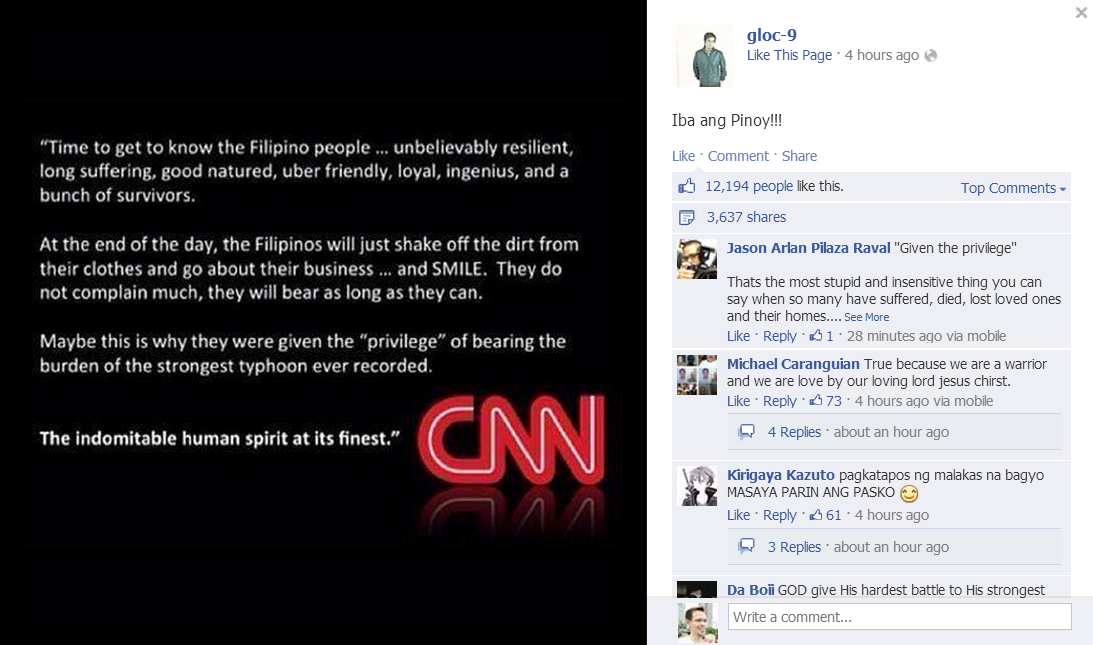Monitored:
This picture first went viral on Facebook, but is now unavailable. I found it again on blogs like stef dela cruz's, red tani's and adrian pantonial's. Basically, it's "CNN's statement about the Filipinos being resilient etc" which apparently turns out to be fake. It never came from CNN, but from a commenter on their site. And I have the same experience and sentiments as the bloggers linked.
Reaction:

It makes people who reposted it look stupid. (Of course I didn't) Let's forgive each other for partly believing. Surely, you doubted it all along now right?
I could write on the angle that netizen's seem to have lacked critical thinking, or another that blames misattribution (because, you know, ...CNN). But I'd rather save us time and be parallel to my ethics class.
With this incident, the very first and I believe to be the most important ethical code has been violated.[1] The lesson to learn is to always validate your sources, just as any journalist should. We should all be responsible users who share information abiding by the principle of truth. This is most tricky on the internet though. Just make sure whatever you're reposting comes from a reliable someone/something, otherwise, please enlighten your audience.
And really, don't make a picture of someone's comment and put some other's logo on it, and share publicly for the whole world to also share publicly. To whoever did that: no need to come clean, doesn't matter if you mean well. I'd like the attention back to helping victims of Super Typhoon Yolanda.
[1] I shall scrupulously report and interpret the news, taking care not to suppress essential facts nor to distort the truth by omission or improper emphasis. I recognize the duty to air the other side and the duty to correct substantive errors promptly. Philippine Press Institute Journalism Code of Ethics
